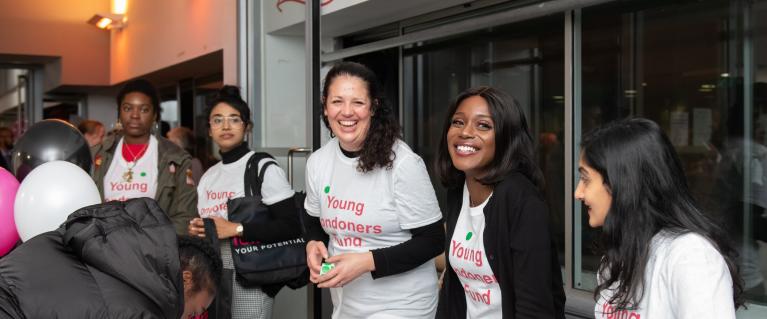
Volunteering with young people
If you want to volunteer with more young people our resources will help you. Learn about best practice and how to create rewarding and valuable experiences for young people.
- In UK law a person is classed a child up to 18 years.
- You should obtain parental consent for children aged up to 18 to volunteer – although the nature and extent of this responsibility is less clear between the ages of 16 and 18
- All volunteers of all ages should be covered by your insurance policy. If you are engaging volunteers under the age of 18 the onus is on you to check your policy does cover them. Some insurance policies do not cover volunteers under 16.
- When creating roles for those under 18 you should give clear information about the organisation and a description of the work/tasks the volunteer will undertake, including (but not limited to):
- time commitments
- where the work will take place
- how it will be supervised
- consider the appropriateness of the volunteer role to a person under the age of 18.
- Young people should not be ‘employed’ unless they are aged 14 or over. The law says that no child can be employed before 07am or after 7pm or for more than two hours on any school day or a Sunday.
- A person who assists in a trade or occupation in a for-profit is deemed to be employed – this is why young people aged 14 and upwards can volunteer in not-for-profits and public services but cannot volunteer in a commercial enterprise although you could rightly argue that charity shops are commercial enterprises! Local authorities regard them this way which means that those charities have to abide by child employment law and obtain child employment permits
- People supervising younger volunteers have a responsibility to keep them safe and may be subject to DBS checks. There is an ‘enhanced duty of care’ towards young volunteers.
If you work with children, young people (under 18) or vulnerable adults you must have additional safeguarding policies in place to protect them.
You also need safeguarding in place for any volunteers that you engage, whatever age.
- NCVO's suite of free safeguarding resources help you make sure your volunteers are recognised and considered in your policies and procedures and that you understand the levels of risk involved in your activities.
- The differences between safeguarding children and adults.
- Creating Safeguarding Policies: Find out everything you need to know about creating the right safeguarding policies, forming the foundation of excellent volunteering management and strategy.
- NSPCC: An introductory guide to safeguarding and child protection for the voluntary and community sector.
- NSPCC: Guide to writing a safeguarding policy statement for children (NSPCC Learning).
- Child Protection and Safeguarding from One Westminster Volunteer Centre.
- DBS (Disclose and Barring Service) checks.
-
standard or enhanced checks are free for volunteers of eligible organisations
-
Here are some articles of interest that share best practise, observations and guidelines:
- A case study from Voluntary Action Oldham.
- Young Time Bank produced the report Involving Young Volunteers: A Tool Kit which is full of guidance on how to create valuable engagement with young volunteers. Their key tips:
- prioritise youth social action
- offer leadership opportunities
- work together
- evaluate and share impact
- recognise and celebrate young people.
The National Youth Agency produced guidance on how to continue vital work with young people during COVID-19:
Need a document on this page in an accessible format?
If you use assistive technology (such as a screen reader) and need a version of a PDF or other document on this page in a more accessible format, please get in touch via our online form and tell us which format you need.
It will also help us if you tell us which assistive technology you use. We’ll consider your request and get back to you in 5 working days.